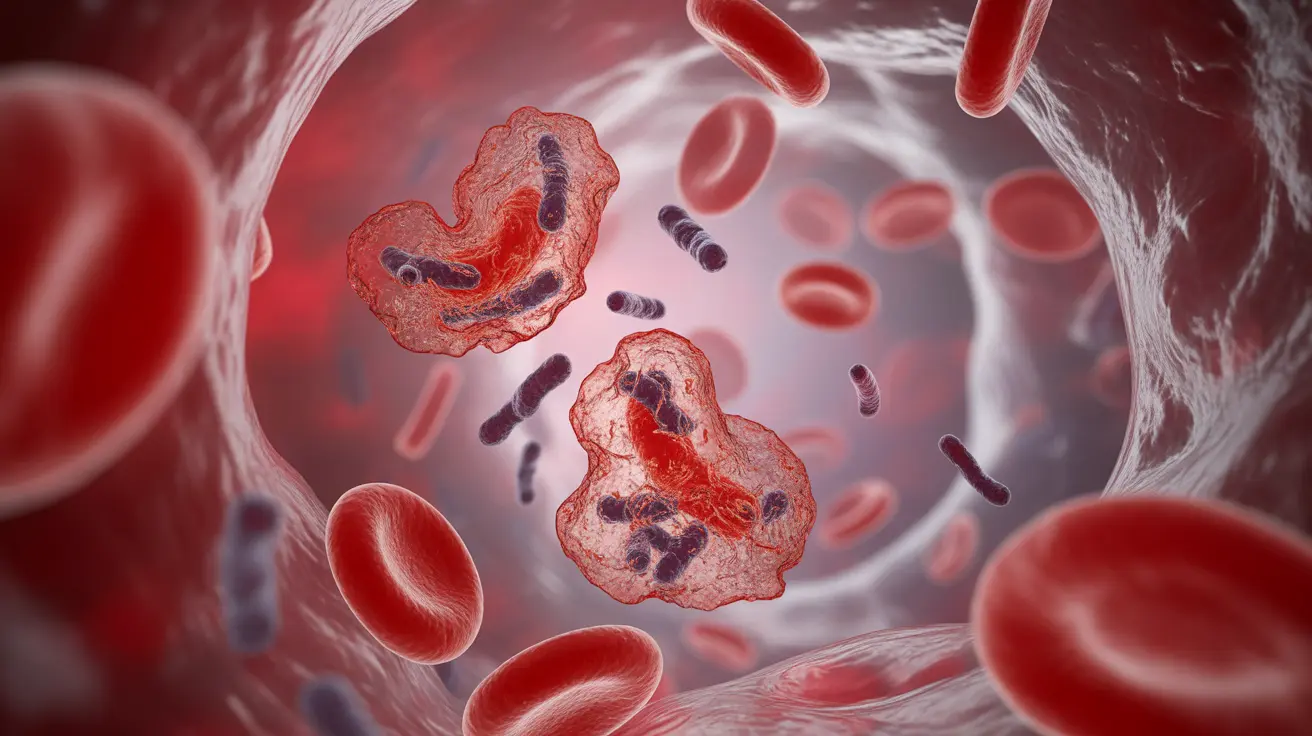Leukopenia is a medical condition characterized by an abnormally low white blood cell count in the body. Since white blood cells play a crucial role in fighting infections and maintaining immune system function, understanding this condition is essential for proper diagnosis and management.
This comprehensive guide explores the various aspects of leukopenia, including its causes, symptoms, diagnostic approaches, and treatment options, helping you better understand this important health condition.
What Causes Leukopenia?
Leukopenia can develop from various underlying conditions and factors that affect white blood cell production or survival. Common causes include:
- Viral infections (such as HIV, influenza, or hepatitis)
- Autoimmune disorders
- Certain medications (particularly chemotherapy drugs)
- Bone marrow disorders
- Radiation therapy
- Severe bacterial infections
- Nutritional deficiencies
Understanding these causes is crucial for proper diagnosis and treatment planning, as addressing the underlying condition often helps resolve leukopenia.
Recognizing the Signs and Symptoms
Leukopenia itself doesn't typically cause direct symptoms. However, the reduced white blood cell count makes individuals more susceptible to infections, which can lead to various symptoms:
- Frequent or recurring infections
- Fever
- Fatigue
- Weakness
- Body aches
- Sore throat
- Swollen lymph nodes
It's important to note that these symptoms often reflect the infections that occur due to the weakened immune system rather than leukopenia itself.
Diagnostic Process and Testing
Diagnosing leukopenia involves several steps and medical tests to determine both the presence of low white blood cell counts and the underlying cause:
Complete Blood Count (CBC)
This primary diagnostic tool measures various blood components, including white blood cells, red blood cells, and platelets. A white blood cell count below 3,500 cells per microliter typically indicates leukopenia.
Additional Testing
Further diagnostic procedures may include:
- Bone marrow biopsy
- Blood smear examination
- Genetic testing
- Immunological assessments
- Imaging studies (if necessary)
Treatment Approaches
Treatment for leukopenia focuses on addressing the underlying cause while protecting against infections. Common treatment strategies include:
Medical Interventions
- Growth factor medications to stimulate white blood cell production
- Antibiotics for active infections
- Treatment of underlying conditions
- Adjustment of medications that may be causing leukopenia
Preventive Measures
Patients with leukopenia often need to take special precautions to prevent infections:
- Maintaining good hygiene
- Avoiding crowds during peak illness seasons
- Wearing protective masks when appropriate
- Regular hand washing
- Proper food safety practices
Dietary and Lifestyle Management
While diet alone cannot cure leukopenia, certain nutritional strategies may support immune function and overall health:
- Consuming adequate protein
- Including foods rich in vitamins B12 and folate
- Maintaining appropriate zinc and vitamin C intake
- Staying well-hydrated
- Getting adequate rest
Frequently Asked Questions
What are the common causes and risk factors of leukopenia? Common causes include viral infections, autoimmune disorders, chemotherapy, radiation therapy, and bone marrow disorders. Risk factors include ongoing medical treatments, certain medications, and underlying health conditions affecting bone marrow function.
What symptoms should I watch for if I have leukopenia? Monitor for signs of infection such as frequent fever, recurring illnesses, unusual fatigue, body aches, and swollen lymph nodes. Any persistent or severe symptoms should be reported to your healthcare provider.
How is leukopenia diagnosed and what tests are involved? Diagnosis primarily involves a Complete Blood Count (CBC) test, followed by additional testing such as bone marrow biopsy, blood smears, and other specialized tests to determine the underlying cause.
What treatment options are available for managing leukopenia? Treatment options include addressing the underlying cause, growth factor medications, preventive antibiotics when necessary, and lifestyle modifications to prevent infections. The specific treatment plan depends on the cause and severity of the condition.
Can dietary changes or supplements help increase white blood cell counts in leukopenia? While diet alone cannot cure leukopenia, maintaining proper nutrition through a balanced diet rich in proteins, vitamins, and minerals can support overall immune function. Any supplement use should be discussed with your healthcare provider.




